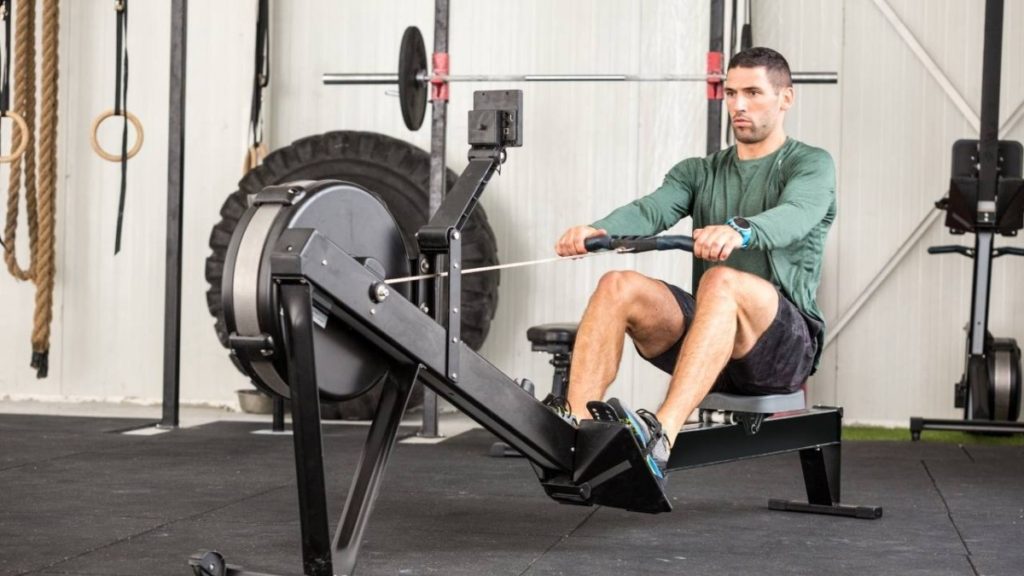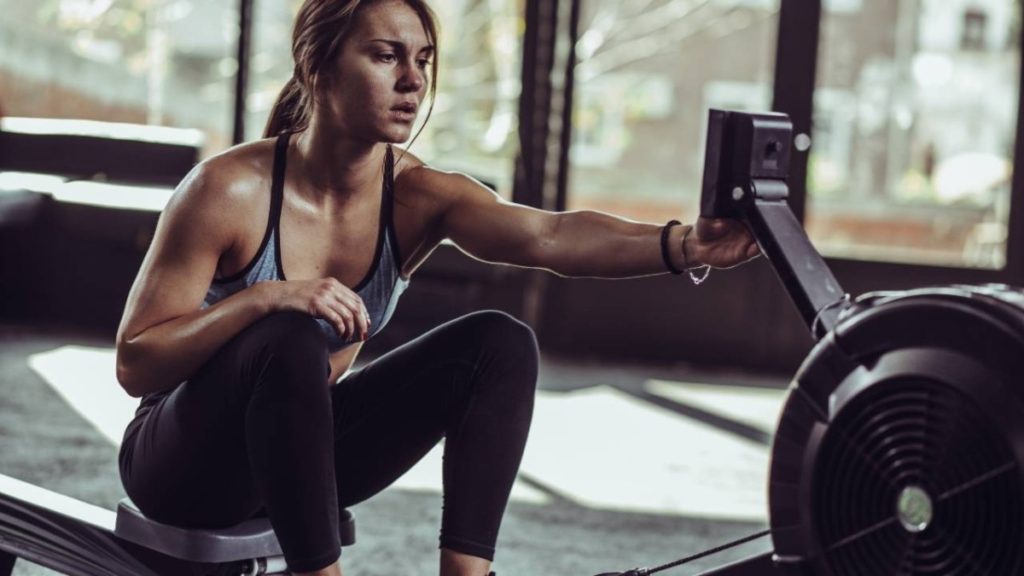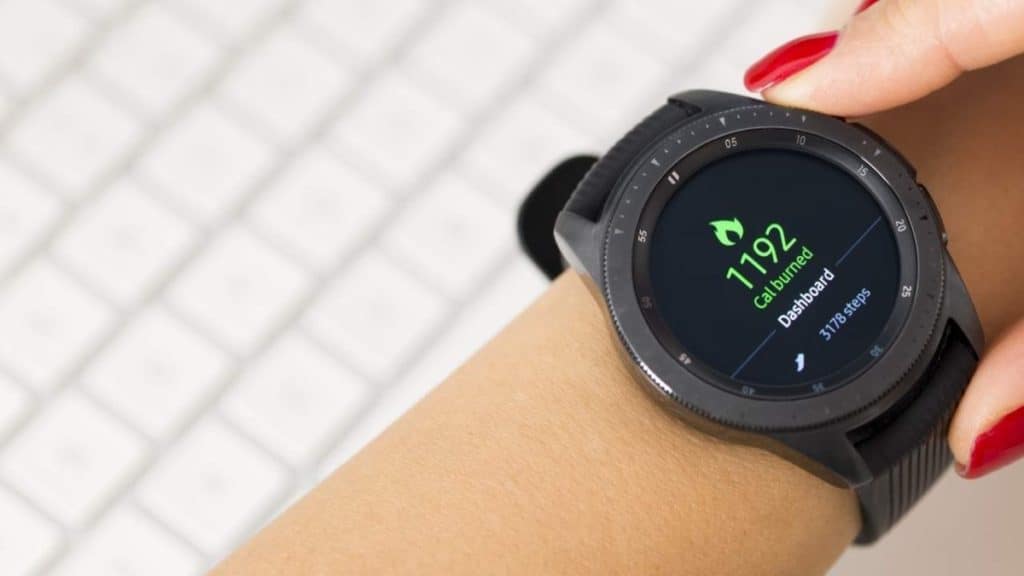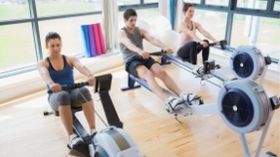
Rowing is an excellent form of exercise because it gives people a full-body workout. If you’re a rowing newbie, you may be wondering what the average time to row 100 m is. Even though rowing 100m is a short distance, many people like to test themselves to see how much power they can produce and how fast they can go.
Unlike other rowing distances, estimating 100m is more complex because of so many variables. When we row longer distances like 1000m, we can calculate average times for people in similar categories. If you row a fast 100m, it’s very unlikely you can hold that spilt for 500m or more. Therefore, if you want to estimate a longer distance, your 500m average time is better.
Table of Contents
What is the Average Time to Row 100m?

The average rower will take anywhere from 20 to 30 seconds to row 100m for most beginners. An intermediate rower can expect a time of 16 seconds. A professional can row 100m in roughly 14 seconds, and the world record is 12.8 seconds.
However, this is just a rough estimate. The amount of time it will take to row a specific distance will depend on several factors, such as your experience level, age, gender and muscle power and endurance.
If you’re new to rowing and it’s taking you longer than that to reach 100m, don’t worry. Once you become more familiar with using a rowing machine and improve your fitness, you may end up going faster than the average time. Most rowers notice an improvement in their speed with more practice.
Rowing is 60% technique and 40% power and fitness. This means that even if you have the strongest muscles in the world if your rowing technique is poor, you’re not going to be a fast rower. Likewise, even if your rowing technique is excellent, if you don’t have much muscle power, you’re also not going to be a fast rower.

Average Time to Row 100m For Males
On average it takes a male between 19.2 – 30.2 seconds to row 100m. A male aged between 30-35 can expect a time of 19.2 seconds. For a male aged 40-45 its around 19.6 seconds.
Most male rowers perform their best around the age of 35 whether they are beginners or have been rowing from a young age. However, this estimate is based on males that are in good shape. The following chart shows the average time to row 100 m for males based on age and experience level.
| Age | Average Time to Row 100m For Males |
| 10- 14 | 00:24.0 |
| 15- 19 | 00:21.3 |
| 20- 24 | 00:19.9 |
| 25- 29 | 00:19.6 |
| 30- 34 | 00:19.2 |
| 35- 39 | 00:19.2 |
| 40- 44 | 00:19.4 |
| 45- 49 | 00:19.6 |
| 50- 54 | 00:19.8 |
| 55- 59 | 00:20.0 |
| 60- 64 | 00:20.9 |
| 65- 69 | 00:21.7 |
| 70- 74 | 00:22.6 |
| 75- 79 | 00:23.5 |
| 80- 84 | 00:24.7 |
| 85- 89 | 00:27.5 |
| 90 + | 00:30.2 |
Check out my big rowing data analytics that contains every rowing distance by age and gender in a full comparison table for beginners and intermediates. You can compare your average rowing times against every distance in your age and ability group.

Average Time To Row 100 M For Females
On average it takes a female between 20.5 – 59.6 seconds to row 100m. A female aged between 30-35 can expect a time of 26.6 seconds. For a female aged 40-45 its around 27.8 seconds.
Similar to males, females also perform their best typically around their mid-thirties. The following chart breaks down the average time to row 100 m for females by age and experience level.
| Age | Average Time to Row 100m For females |
| 10- 14 | 00:30.6 |
| 15- 19 | 00:28.9 |
| 20- 24 | 00:27.9 |
| 25- 29 | 00:27.5 |
| 30- 34 | 00:26.9 |
| 35- 39 | 00:26.6 |
| 40- 44 | 00:27.8 |
| 45- 49 | 00:27.5 |
| 50- 54 | 00:27.3 |
| 55- 59 | 00:27.7 |
| 60- 64 | 00:31.1 |
| 65- 69 | 00:32.6 |
| 70- 74 | 00:33.7 |
| 75- 79 | 00:35.7 |
| 80- 84 | 00:37.9 |
| 85- 89 | 00:48.7 |
| 90 + | 00:59.6 |
Males generally are faster at rowing 100m than females because they have more muscle mass. In a study done in 2013, the average time it took for males to row 100m was 16.48 seconds while the average time for females was 17.34 seconds. Males usually have enough power and speed to row at a fast pace for the entire 100m while females tend to start out strong but then lose power towards the end of the 100m.
Other Helpful Rowing Distances

How Many Calories Do You Burn Rowing?
Rowing is a great way to burn calories, however, we aren’t able to give you an exact amount that you will burn while rowing. You see, there are a few things you need to consider that affect how many calories you will burn:
• The pace you’re rowing at
• Your weight
• The distance you row
An average rower going at a moderate pace will burn 7 calories in a minute. During that minute, they will likely cover 200m. If the same rower were to only row for 100m, they would burn 3.5 calories. If you are going for a full-body workout, you likely won’t stop your rowing experience at 100 m.
The following chart shows how many calories the rower will burn per distance.
| 1000 m | 35 calories |
| 2000 m | 70 calories |
| 5000 m | 175 calories |
| 6000 m | 210 calories |
| 7000 m | 245 calories |
| 8000 m | 280 calories |

Is Rowing 100 M Recommended Every Day?
Rowing 100 m is a very short distance that even beginners can surpass in a short period of time. Many experienced rowers complete this distance within a few rows.
Since rowing is a great form of exercise, it’s recommended to use a rowing machine 4 to 6 times a week. If you want a good workout, you will need to row for longer than a distance of 100 m. If you’re a beginner, you should aim to complete 5000m to 7000m for a full workout.
Another way to look at it for beginners is to row for 30 minutes at a moderate pace and make note of the distance that you have covered. Even in your distance doesn’t seem impressive, you will still get a great workout and your distance will improve the more you row.
Final Thoughts on The Average Time to Row 100m
What is the average time to row 100 m? The average time to row 100 m will depend on a few different factors:
• Your rowing experience
• The pace you’re rowing at
• Your age
• Your gender
The estimated average time for a rower to complete a distance of 100 m is 15 to 30 seconds. Many expert rowers can do it in less time than that! However, new rowers shouldn’t be discouraged if it takes them longer than the average time to cover 100 m. Your speed will improve when you spend more time rowing.
Most rowers will perform their best when they are in their mid-thirties. This is for both male and female rowers of all levels, as long as they are in relatively good shape.



